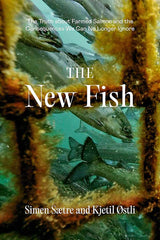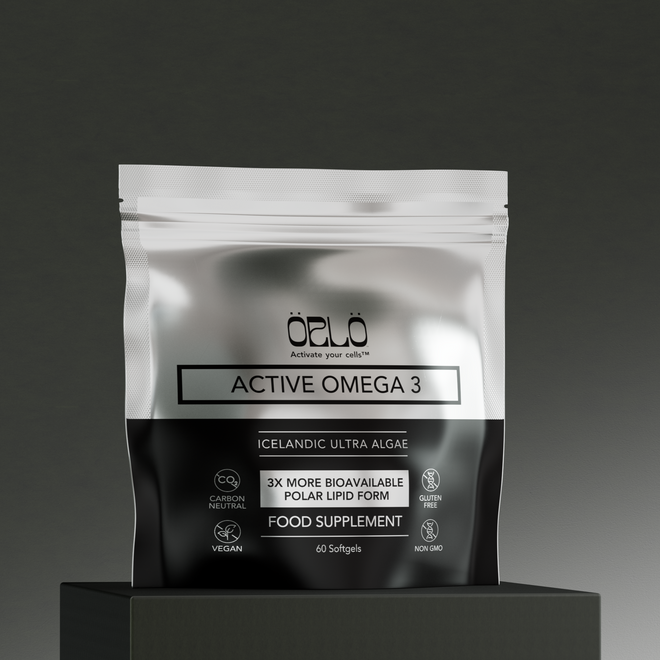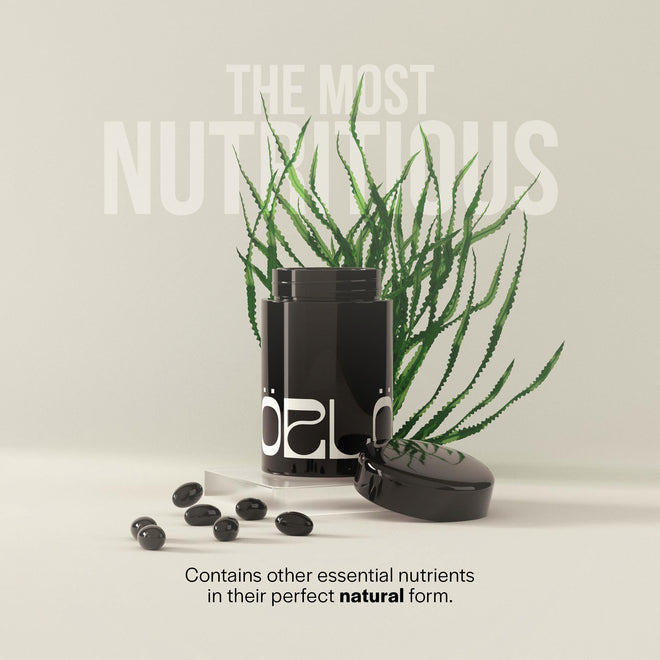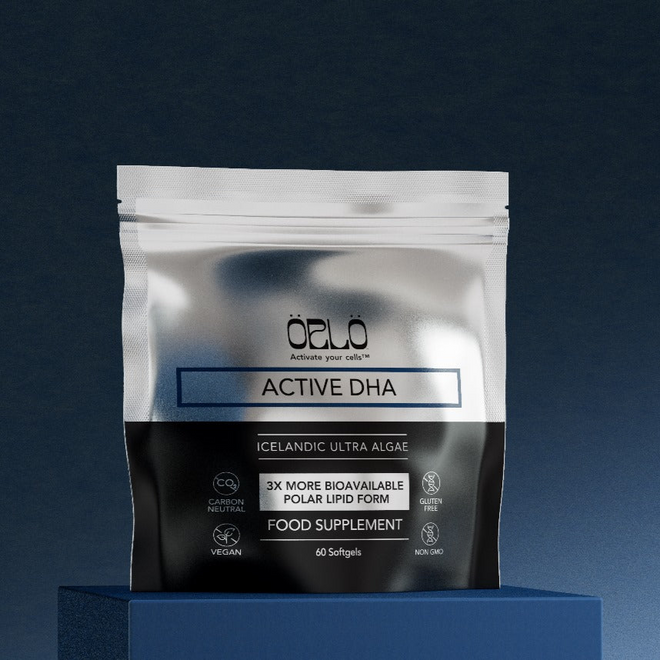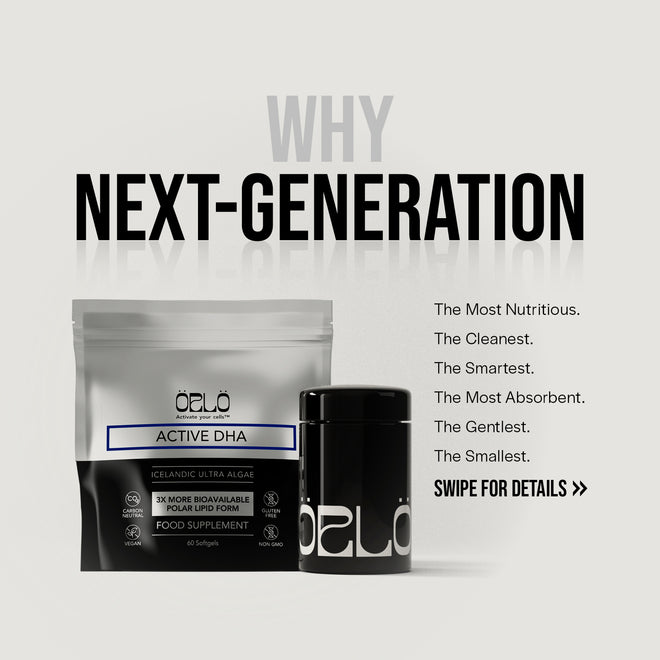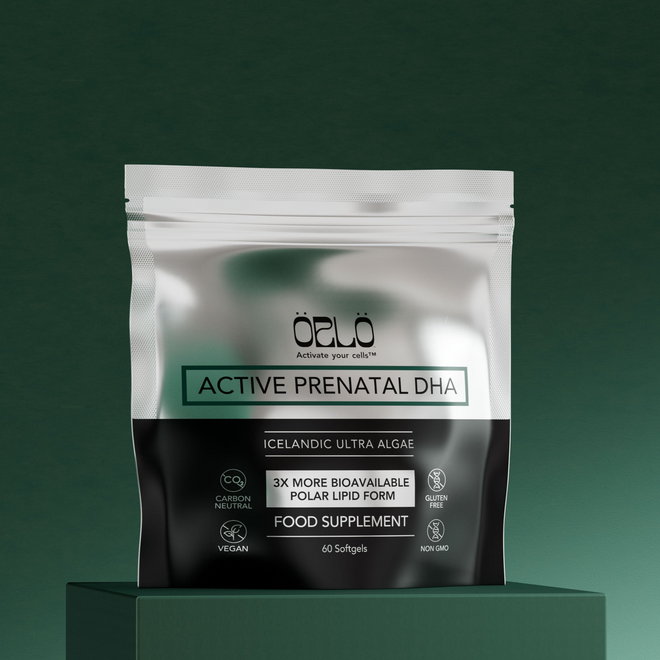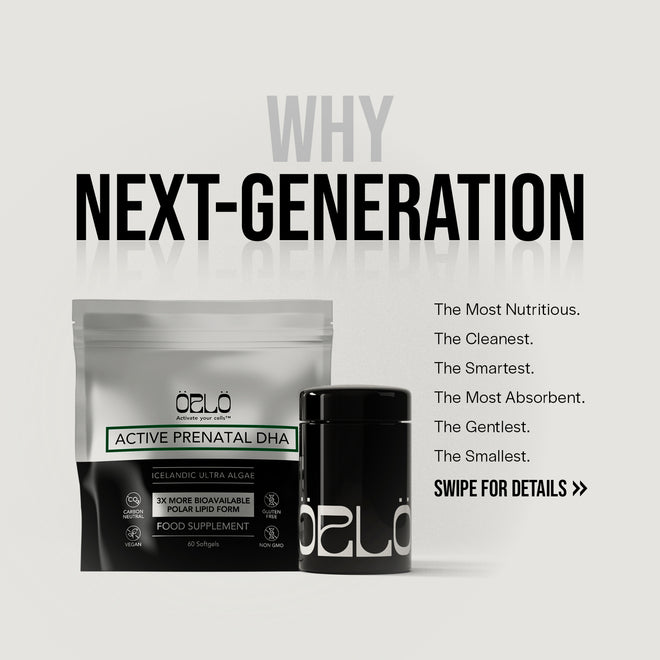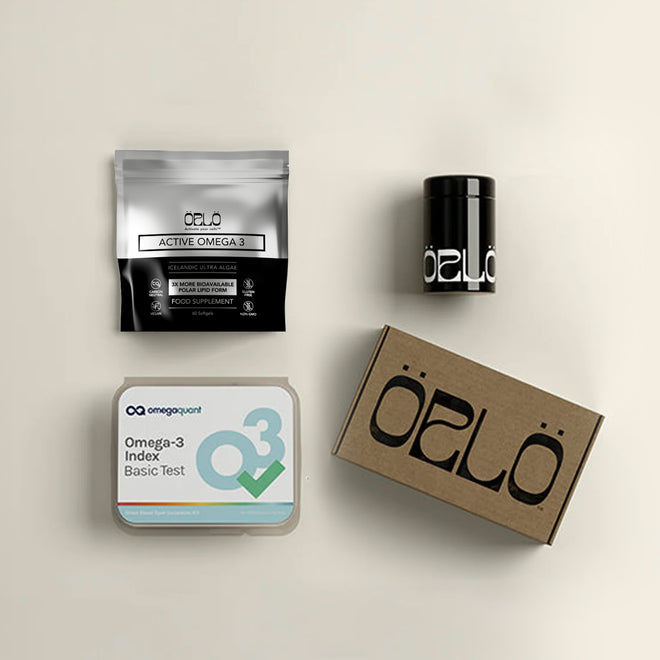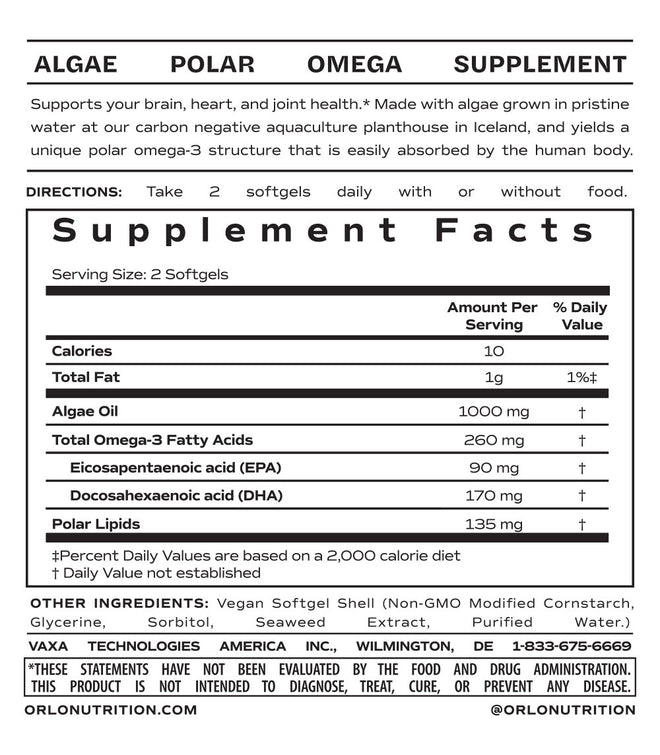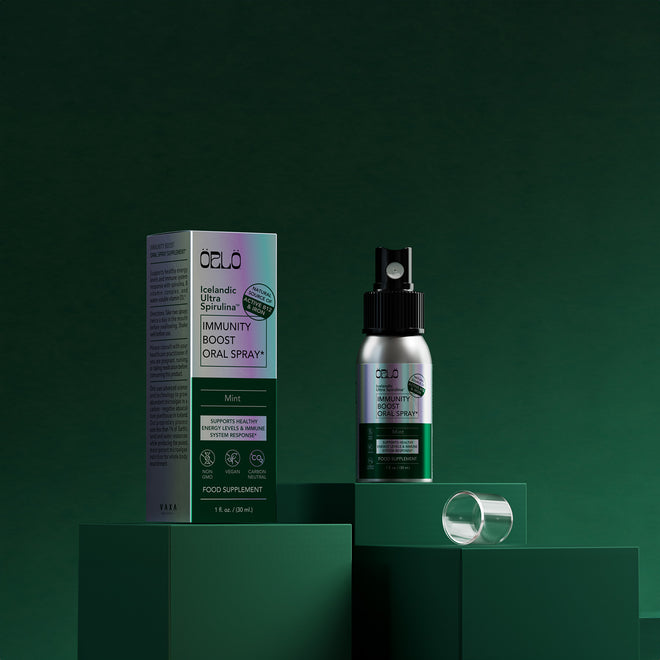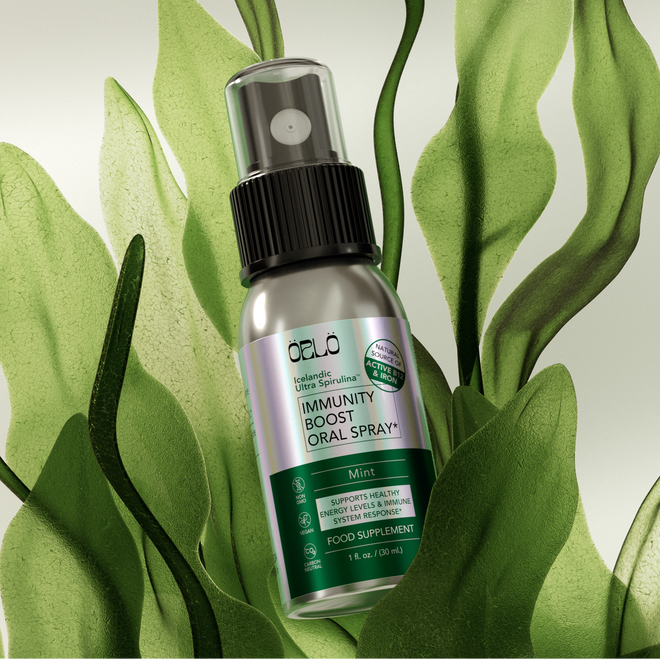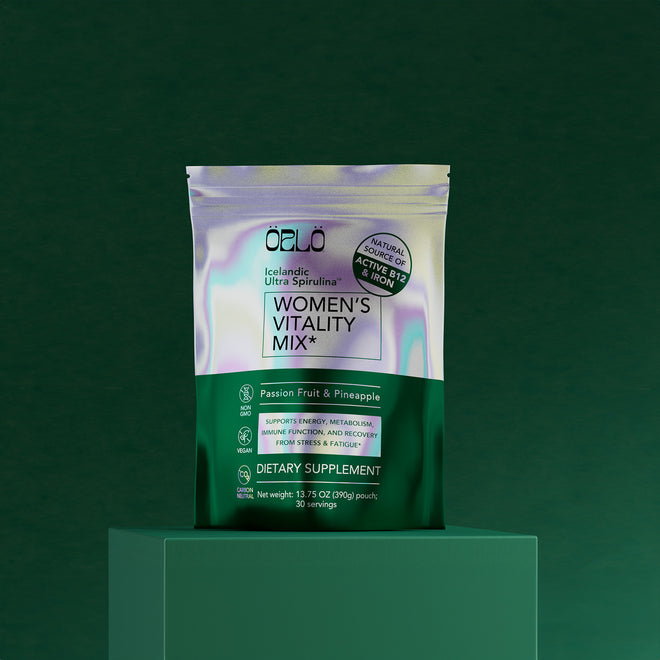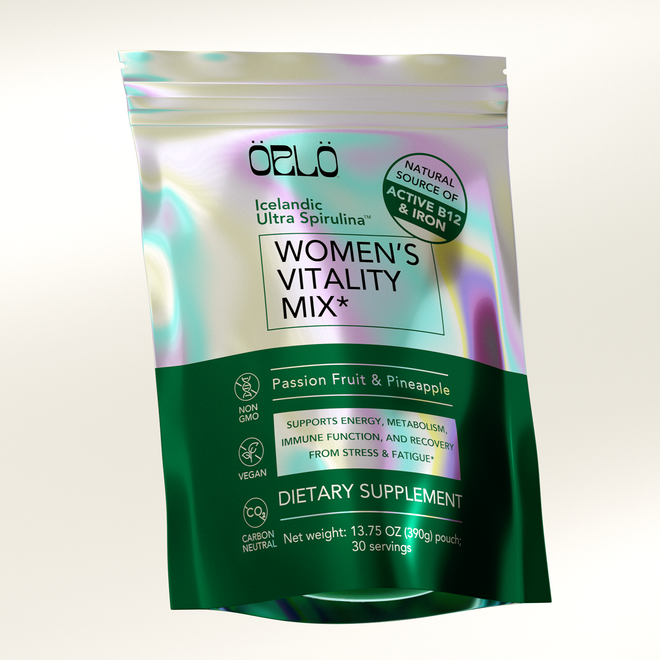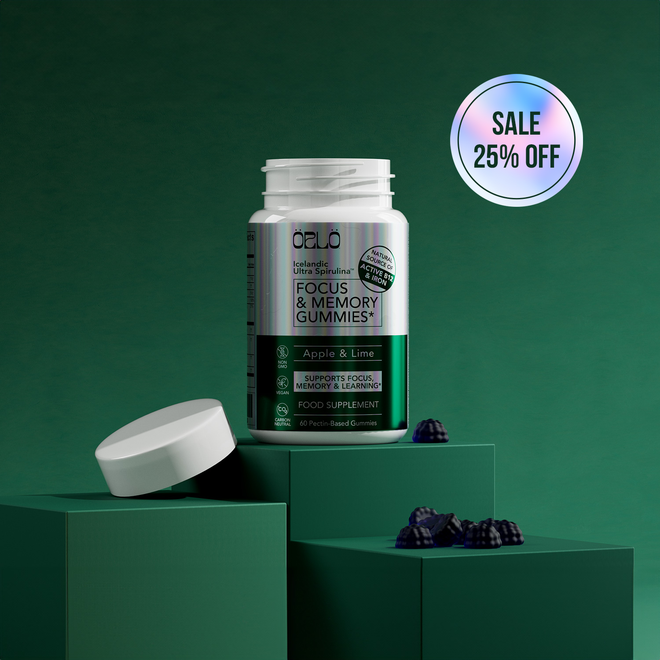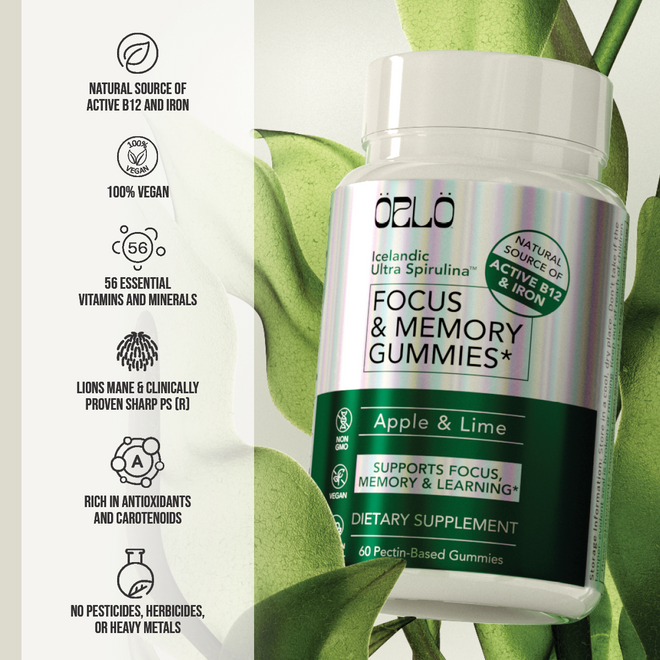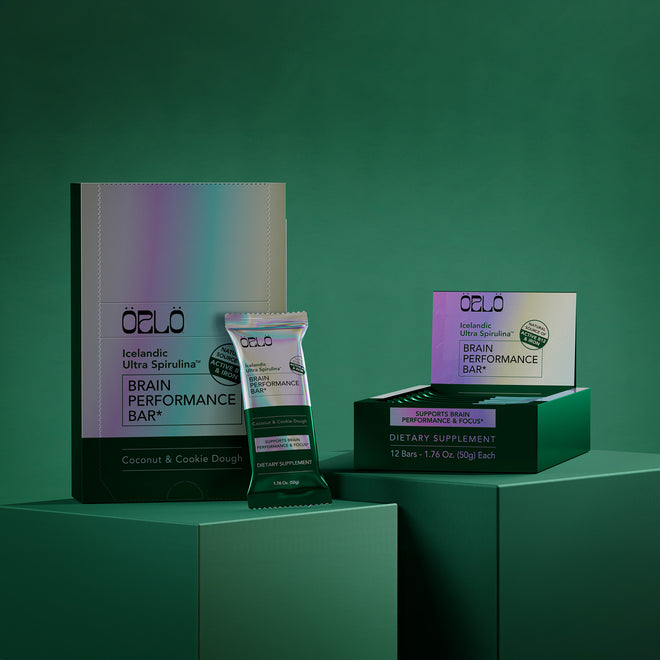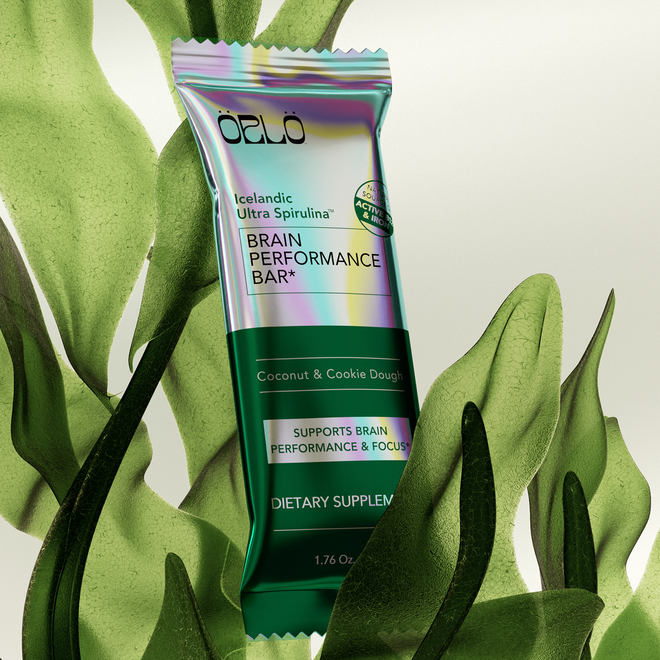Black Friday Exclusive - 30% Off Sitewide | Code: BLACK
The Glyphosate Poison: Unearthing The Toxicity Of Food With @GlyphosateGirl, Kelly Ryerson
Watch the episode here
Roundup aka herbicide aka the plant killer. While this product is used to control and kill weeds, you may unknowingly be consuming it through your food. Dangerously, it contains glyphosate that can negatively impact your health. Shedding light on the toxicity of food, Corinna Bellizzi interviews @GlyphosateGirl, Kelly Ryerson. Kelly works at the intersection of agriculture and health. She regularly collaborates with farmers, scientists, policymakers, and media to address agrochemical damage to our soil and bodies. In this episode, she shares that in-depth knowledge with us to open our eyes to the glyphosate poison we’re inadvertently exposed to. She breaks down its impact not only on our health but that of entire ecosystems and the ways we can avoid it. Take control of your health today! Start by tuning into this conversation!
Key takeaways from this episode:
- Roundup is sprayed on our grains
- What makes glyphosate such a toxic compound
- What foods should you seek to always buy organic
- How much glyphosate is in our environment
Guest Social Links:
Website: https://www.glyphosatefacts.com
LinkedIn: https://www.linkedin.com/in/kelly-ryerson
Instagram: https://www.instagram.com/glyphosategirl
Soil & Health Forum: https://soilandhealthforum.org
Organic Grains, Beans & Legumes: https://www.mendocinograin.com
---
The Glyphosate Poison: Unearthing The Toxicity Of Food With @GlyphosateGirl, Kelly Ryerson
I'm sure by now that you've all heard of the plant-killer herbicide commonly referred to as Roundup. Roundup contains glyphosate. It's a chemical that was engineered to be sprayed onto plants, but that would kill common weeds. In some cases, it's even engineered directly into the food. You've likely heard that this chemical is generally a bad thing, but you may not understand why. You may not even understand how much of this chemical that you're exposed to or how you might avoid it.
To unpack this complex issue and learn how glyphosate negatively impacts your health and that of entire ecosystems, I'm joined by the Glyphosate Girl herself, Kelly Ryerson. Kelly has contributed to several documentaries and news publications. She co-hosts The Morning Show on CHD-TV and is a frequent speaker on shows like this one. She has a BA from Dartmouth, an MBA from Stanford and completed training in Integrative Health Coaching at Duke. She also serves as an ambassador for the Rodale Institute, which we will learn more about in this episode. Kelly, thank you so much for joining me and welcome to the show.
Thank you so much for having me. I’m happy to be here.
It was fun to have the opportunity to meet you face to face along with many from the Rodale Institute because last time, we were doing Tara Firma Farms and Petaluma for the Soil & Health Forum. I feel like I'm fresh on some of this information. I got the opportunity to see you speak and I'm thrilled to be able to share your knowledge with our audience. I would love for you to get started by telling us what made you decide to lean heavily toward this work to combat glyphosate.
It's certainly not something that I ever anticipated spending my life on. I have a background in finance and business. I was happy. I had children and suddenly, my health started taking a dive. I felt terrible. I didn't know why. I had a lot of symptoms that you would typically connect to autoimmunity, but I wasn't showing up with a specific autoimmune condition, which made it challenging to figure out what was going on. I was one of those stories that you hear about. Probably everyone has a friend or family member now that I saw tons of specialists, and for me, the only answers they had were medications.
I was layered with medications. I’m not doing better. In fact, I was doing worse because of the side effects, and then a doctor suggested that I try going gluten-free because she had seen a lot of her interestingly female clients get a lot better when they had big symptoms. I went gluten-free. I started feeling all better, eating organically, and feeling a lot better. I was re-supplementing my body with all the nutrients that it turned out I was very much missing and was unaware I was missing. I've been following the instructions of my doctors, who as we know, were not typically trained in nutrition or even these basic fundamental supplements, vitamins and minerals that we likely need for our bodies to work.
A little bit down the line, I learned that Roundup is sprayed regularly on our grains. I was shocked because the only thing I knew about Roundup at the time was that I'd seen it at Home Depot for sale and that, horrifyingly, a gardener had used it. I didn't know it was horrifying at the time, but a gardener had used it to blow out my whole front lawn while I was pregnant, which is horrible because it turns out that's very toxic.
Thinking about that being used as a harvest aid on our grains is a shocking thing that very few people know about. I started digging from there, trying to figure out the science and thinking, “Why isn't anyone talking about this?” That was many years ago now. I made myself Glyphosate Girl because I went up to the San Francisco cancer trials that were going on. A lot of plaintiffs were claiming that exposure to Roundup had given Non-Hodgkin’s lymphoma.
It made international news and was a big deal, but it was amazing because not much media was there to tell the story about what was happening in the courtroom, which shocked me because Monsanto, a manufacturer of the original Roundup, was finally under trial. Many people hold Monsanto as the most notorious evil devil company of all time. I assumed it would be packed and it wasn't. I was like, “I've got to write about what's happening in here every single day.”
It's because I think it's because we're terrified of having to sit through the tedium of a court case because it's amazing how much time that takes, but we can be activists in the background and say, “Monsanto is MonSatan,” so much so that now Bayer who has purchased them. The Monsanto name is not there anymore. We've killed it, essentially.
In fact, that was almost comical because when Bayer came in and acquired Monsanto in 2018, the next day, they showed cranes taking down the Monsantos. It was a big problem with a corporate image with that one.
What do they call it now? It's a Roundup.
It's still Roundup. There are Bayer Pharmaceuticals and Cropscience. Cropscience is their new wing which was formerly Monsanto.
It's hard when you know as much as you know about the background when Monsanto was actively pursuing having an engineer into food that wasn't sprayed on but integrated, as was the case with corn.
1996 was the launch of genetically modified seeds. I was a young teen when those were launched. This is interesting. That's cool genetic modification. That's a great thing. It's notorious because the way that Monsanto marketed at the time and our government marketed it is amazing. We’ll be able to create so much food. People won't go hungry. This is phenomenal. I was like, “That's great Innovation right there.” What no one was talking about is that this amazing genetic modification was that these crops could be grown sprayed with Roundup and not die.
The biggest thing is that more pesticides could be sprayed on the cross in a farming system. They were called Roundup Ready crops, soy and cotton. Now, over 90% of what we have in this country is Roundup Ready and not just Roundup. I love what nature does this. Some of the weeds thought glyphosate was the active ingredient in Roundup. They become superweeds. They're causing big problems for farmers because now, Roundup isn't killing them anymore. They've made these crops, now herbicide-tolerant, these GMOs to up to five different pesticides, many of which are more toxic than glyphosate, even. It is such a mess. It's ridiculous. There's no way out of it.
Perhaps we could get into a different conversation about some more regenerative solution. I want to talk about why glyphosate is such a problem and how prevalent it is in our systems. Can you talk about what makes glyphosate, in particular, such a toxic compound and why it's something that we should seek to avoid?
Glyphosate does many different things to our bodies and the list is almost the entire system. I'll start with cancer because that was the headliner and it was very clearly connected to Non-Hodgkin’s lymphoma in a multitude of studies. That's what all these lawsuits were based on. When regulators approve a chemical, they look for carcinogenicity. There's a foggy, very questionable past of glyphosate because originally the EPA said this is a carcinogen and then mysteriously, some back door kinds of things or back room where some negotiations were made and suddenly, it wasn't. It was no longer considered a carcinogen.
People are happily applying this with no protective clothing at all, farmers included, but also homeowners and they're getting cancer. Finally, the International Agency for Cancer came out and they are their own independent thing. They're not tied to industry influence like the country regulators like REPA or EPSA. IR came in and they said, “This is a probable human carcinogen. All of this research that's independent shows. It is the only research that's showing it's not, it's mostly an industry bot. They are paid for or submitted and they weren't looking at those.”
When you look at independent research that was showing that this causes cancer, that's how a lot of these lawsuits have been won. We have Non-Hodgkin’s lymphoma, which potentiates estrogen. That has led to it being connected to breast cancer. There are a variety of different lymphomas and other leukemias that have been traced in it as well. Those are distressing things, but then it gets even worse because even if you're not affected by cancer, it very much is an endocrine disruptor, meaning that it messes with the hormones.
Even if you're not affected by cancer, glyphosate is very much an endocrine disruptor—it really messes with the hormones.
I get the chills just thinking about it. I was diagnosed as being hypothyroid back in 2009. I live a pretty organic lifestyle, but I also travel on business. I eat out. I think that it's important for our audience to understand the gluten and glyphosate connection because many people say that when they stop eating a lot of grains, their hormone issues seem to disappear or become lessened. Part of the reason it looks like it, from what the science is showing, is that we are consuming too much of these chemicals through our food sources. They disrupt our hormones and our microbiome, so we can't digest food the same way as they disrupt the microbiome of the soil, so the soil isn't healthy.
We end up in this cycle of negativity, where our health systems start to degrade. By getting to more of a Whole Foods diet where you're eliminating these grains, you do better. Magically, if you do something like travel to Europe and add grain bacterial diet, a lot of people who are gluten-sensitive here or who seem to be sensitive to wheat report that, “I can eat pasta and bread in Italy. I don't get sick the same way. I don't feel as disconnected from my gut.” This is the space or intersection where we can help people understand in a real way where they can work to avoid excessive exposure to glyphosate in particular. What foods should we be looking out for?
The grains are definitely the biggest piece. Going back to what you said, Monsanto did patent glyphosate to be an antibiotic. Its impact on the microbiome is substantial. There are a lot of studies that have come out of England and out of China that are showing that it directly can kill off the good gut bacteria, including lactobacillus and bifidobacterium, which when you're taking a probiotic supplement, oftentimes, that's what it will be because those are incredibly important to the function of our body.
What's also distressing is that it doesn't have that same state effect on more pathogenic bacteria or the bad guys. It allows those to proliferate, but the good stuff is being destroyed and then you have a major league dysbiotic gut which, as we know, is tied to many different health conditions, and so much comes from the gut. In terms of the integrity of our guidelines as well, what is called leaky gut, glyphosate has a role in that in making that even bigger problem.
You have the gluten itself, which is inflammatory in general, and then you add on this chemical of glyphosate that's known to be an antibiotic and to destroy our gut lining. That is a bad combination. As you said, in Europe, I am an example of someone who went to Denmark and could have gluten. I was fine and they typically do not practice pre-harvest spraying there. In addition to that, their grains are not usually as industrialized as ours are. They're more digestible. Does that whole picture over there?
If you're committed to eating grains for the rest of your life, I wouldn't suggest doing the United States and Europe, which is something I thought about because I miss it a lot. Those are important things. When you think about what has done this to our gut biome, it's doing the same thing in the soil. We have a situation where the soil is no longer holding all the organisms and the organic matter that we need for it to be real soil that can create wonderful crops, sustain life and do all the magical things that soil can do. It's like the antibiotic to what we have going on in the soil. It's a mess.
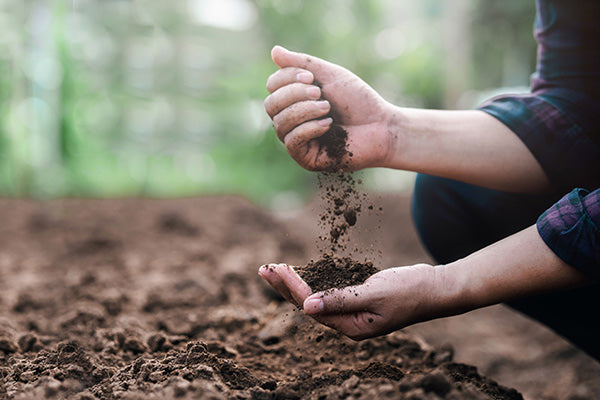
Every time you say antibiotic with regard to this, you seem to almost like stifle a chuckle because it is laughable, like we're spraying something that kills the microbiome on our produce and on.
Isn’t it nuts when you think about it? Just the fact that I don't feel like we're that rare now and understanding like you. I have that rare and understanding that the biome is critical. It shouldn't be that far of a cognitive leap to understand why this is bad and you would think that regulators or I don't know who, maybe even the corporations who are struggling with their own health might say, “This is bad.”
You wouldn't even have to prove necessarily that it's cancerous. It's going to kill your gut.
It's going to be shortened pregnancies. That's something that they can cause. It's been known to be an androgen. It causes non-alcoholic fatty liver disease and kidney disease. Most of the time, those are through dietary exposure. As you were saying, the grains are definitely the biggie. If you look at the various tests that environmental working groups or moms across America have done, typically, the grains show the very highest levels, but not just grains. It's also beans and legumes. Hummus has absolutely the highest residue by the state I've ever seen because chickpeas are all sprayed, which is sad.
I was at Whole Foods in New York. There are some Jewish standing there. They were like, “This will do. I don't think we need to buy organic for that.” I saw it and I was like, “You should buy that organic. If you're going to do hummus, you get organic on this.” They looked at me like I was crazy, but I saw over 2,000 parts per billion run through my head of glyphosate in that container of hummus. It's upsetting to see and know that it was going to injure them.
You also will find it in wine, nuts and in various orange juice, things that are grown in orchards because glyphosates are typically used to kill off the weeds or any of the cover crops used in between the rows of crops between the vines. The roots pick it up and then bring it into the fruit. That's disappointing because the taste can vary and wine depends on what pesticides were used because it's all picked up and it's brought right there to the wine. It's funny when you think about what something might taste like or what you taste. Are you even tasting that particular grape or the glyphosate that's in it?
It's important to talk about here what foods you should seek to always buy organic if you've done all this research, I've heard strawberries are among the worst in fruit because they're spraying. They're close to the ground. There's not as much space for the nutrients or pesticides to travel into the fruit. The surface of them is very forest. What other particular foods do you advise even those who are shopping on a budget to always go to organic?
Certainly, any of the berries. They're big ones to eat organically. Interestingly, bananas as well. You would think that they are probably okay because they have that nice peel on the outside, but if you've ever seen a video, as I unfortunately have, of what is done to those bananas in terms of being drenched with all kinds of junk, that would be another one to stay away from. Go back again to the grains. That's an important one. You can go ahead and eat organic grains and your exposure will be pretty low although when this testing is done, sometimes you'll see that some organic or other products have glyphosate in them.
Eat organic grains and your exposure to glyphosate will be pretty low.
Normally, that's mostly because it's either in the water or in the air, some drift or it is because the manure that's used to grow and fertilize the soil where those crops were grown was taken from a CAFO or animal factory where those animals are primarily fed GMO sewing corn and there's glyphosate that then they are pooping out because that's one of the major ways that they excrete glyphosate. If you take that and then put it on the farm, the crops will pick up the glyphosate.
I heard another pesticide specialist once tell me that they're in our organic farmer, “I don't know what we were thinking when we started to make water-soluble pesticides. It was known for a long time that we would use fat-soluble pesticides so that they didn't get into the water table and pollute to the point where they were now a part of our drinking water.” That's what's happened with like glyphosate and farming areas.
It's stunning to me that the expert was exactly spot on why you would ever have something that's water soluble was going to go wherever that water is. Most municipalities don't even test for glyphosate because it's considered officially not harmful to humans. That is officially what the EPA clients. There's no evidence of harm to humans and it's BS. We have all kinds of evidence that there is. That's another step that I do. Anyway, I use a water filter and usually, if that water filter has carbon in it, then that should be enough carbon filter to get rid of or minimize the glyphosate that you're exposed to.
There are a lot of people who will reach out to me and are very concerned because their neighbors are spraying. Many people live in farmlands or even not farmlands. Neighbors don't believe you when you tell them there might be a problem with it, which also happened on my street. In those cases, you can make sure your windows are all sealed. Make sure everything's blocked off on that day. If you're extra sensitive or concerned, get out that day from the area where it's being sprayed and be sure you take off your shoes when you come into your house so you're not tracking it in for any reason.
Between those things, that is a great way in terms of environmental exposure. You're doing that. You filter your water and then you eat primarily organic food. I'm not 100% organic because it's impossible for me to do and have a social life. I do feel it when I don't eat well for a bit and starts catching up with me. I know what it is. Go easy on yourself. It's stressful enough to make these shifts but eating as much organic food as possible is the best.
I say the same thing to my friends and community as well. Going out to eat as a treat. I don't do it as often as I might like because I want to protect what I'm bringing into my stomach and my body and those of my children. We control that a little bit seriously because if you don't, then you can run into problems later. There are some alarming statistics about even the health of our children and incidents of birth defects and areas that are commonly sprayed with these other petrochemical-based pesticides, of which Roundup is one, but there are also other components to round up beyond glyphosate. I know you spoke to that at this Soil & Health Forum. I'd love for you to share as well what other problems are with this type of chemical mix.
Glyphosate itself is never sprayed alone. It's the most famous chemical in the Roundup product. Roundup is called the glyphosate-based herbicide, but it is a formulated product. In that formula, glyphosate is supposedly the active ingredient, but it's not the only active in it. That's what they claim. If you look on the label, it says active ingredient glyphosate. Next is a surfactant, a soapy substance that allows the product to cling to a leaf or to whatever it is and then allows the glyphosate to penetrate into the leaf, the skin or whatever it comes in contact with that is permeable.
The surfactant that we use in the United States is called POEA. It is incredibly toxic. A lot of people will claim that it's more toxic than glyphosate alone for sure maybe even glyphosate. What's disturbing is that the EU banned it a long time ago because it was toxic. It wasn't allowed in anything in their country. They said, “We're going to have Roundup here. It can't be with POEA.” Monsanto made a different formula for them without POEA with a less toxic surfactant and that's what they get over there.
Meanwhile, it says, “We don't care about that. Let's bring in that more toxic Roundup as we don't have enough issues.” That is in there, which is disturbing. A French scientist decided he wanted to see exactly what was in this formula because he didn't believe that was all it was. He tested the American formula for everything that was in it and shockingly also found a significant amount of heavy metals in it including arsenic, which is scary.
None of these heavy metals have any business being sprayed on our food or soil, doing even more damage and then adding to the heavy metal load that already we have issues with. That's also in there. The combination of POEA, glyphosate and these heavy metals are toxic. It's the most used pesticide in the history of the planet. It's used all over the place. There's no avoiding it and yet that is what it is. That is very disturbing.
One of the other reasons that there is much of it in our systems, our water tables and everything else is because of how liberally it's applied. Even when it's not needed as a pesticide, you alluded to this already, but I love for you to talk about how Roundup or glyphosate is used to prepare grains for harvest.
Pre-harvestigation is what opened my eyes. I knew this before I even knew anything about GMOs. This is what the story is, and I believe it. Climate change is making it hard to have even ripening of crops. It's hard because typically, before we had a lot of weather fluctuation, you could cut the crops down and they could dry on the field and then they'd be brought in, but now if you leave, say the wheat on the field, like that, there's a risk of weather damage and then early sprouting and all kinds of things that can go wrong.
The ideal situation is to have a very even harvest with an even field of equally dried-out grains. That doesn't typically happen naturally. To decrease the risk of losing the crop, they decided they could spray Roundup on it and kill off the crop all at one time so that then when they go and they harvest, they haven't lost any of the crop, and they can get it all in one big sweep and one day and harvest it all at the same time, but unfortunately in doing so, glyphosate is a systemic herbicide. It's not like you can wash it off. It goes into the food itself and whatever the fruit is of the crop. That's what it does with wheat.
It is probably the same with legumes and oats. by the time it hits the mill, that's going directly out to the food producers, then we're consuming it in a relatively rapid fashion, still full of these glyphosate residues all because of this pre-harvest spring practice that is reversible. There are organic farmers that do not do this. It is possible to do it without it. It's a lot more challenging and you have to be a little more crafty about it.
One of the reasons is if part of the field isn't ready for harvest and isn't dry enough, when they bail it, what happens? It essentially starts to mold. That becomes waste and therefore, they don't like that because then they have to only do small sections or can't do everything at once in order to produce their yield. This is one of the reasons when I talk to people about their love of oat milk, they choose to get oatmeal milk that is non-GMO or organic and preferably both and then they're going to be okay, but also make sure that they understand that they're added oils to that that come from seed oils which can be more inflammatory. If you're trying to address innate inflammation in your system, oat milk might not be the best choice.
I’m glad you mentioned that because there's a lot of confusion. If something is non-GMO, that doesn't mean at all that there's no glyphosate. Sometimes, the highest level of glyphosate is on things that are non-GMO. Non-GMO label is helpful to a certain extent. If you don't want to have GMO corn products or process products off of GMO soy, then you're not going to get them if you buy non-GMO, but other than that, it can have any chemical on there. That's legal, which isn't unless it's organic.
It can't be genetically engineered with glyphosate naturally in the seed. That makes things a little bit different, but still, when we make our choices about the things we consume and put in our bodies, we need to keep these things in mind. I wonder if you can talk about the situation we have with the ecosystems that are impacted by glyphosate being in the water that's running off into the rivers, into the streams and ultimately ending up in our oceans. Do you know what that is doing to our ecosystems, fish populations, etc?
It is highly toxic to fish. There's an enormous body of evidence that shows that glyphosate runoff into streams or rivers and into the Gulf of Mexico. The Gulf of Mexico is collecting everything. It's all the fertilizers, pesticides, animal waste, and everything coming down through the Mississippi River, Cancer Alley and out into the Gulf of Mexico. That is a horrible thing in particular because it's usually people of lower socioeconomic levels living in that area and all this waste impacts them and don't have much of a say about their livelihood or what should be happening.
From a justice standpoint, that's upsetting. Dr. Stephanie Seneff was talking about how glyphosate potentiates red algae growth and blooms, the red algae that you may see on the news sometimes. I've had people reach out to me from Miami, where they are having an enormous problem with that and it's interesting because I saw a video of someone standing over on a dock with Roundup spraying it directly into the water to kill off supposedly invasive seaweeds species that they don't want to have there.
It was sprayed also in the Galápagos directly into the water. It's incredibly unbelievable to think that is okay and approved for use in that way. As we were talking about, it's water soluble, it's going to go everywhere and we know that it's toxic to sea life. That is strange, but Miami banned the use of it in aquatic places. Thank goodness because of the red algae situation.
Red algae and flesh-eating bacteria, which is also thriving there. There are many problems associated with these ecosystem collapses that we can't necessarily put a finger on until it's already a problem. What we do see is there are declining fish populations in areas that are impacted by this type of runoff. One of the speakers at the conference that we will both attend, the Soil & Health Forum, was nearly brought to tears talking about salmon populations and hoping that they returned to some of those rivers.
I know that we looked to these animals for healthy food sources. I even connected with Simen Saetre, who's a Norwegian investigative journalist. He wrote a book called The New Fish that is put out by Patagonia Press, in which he talks about the fact that in Norway, when they're farming salmon off the coast, they're all dumping all sorts of chemicals into these open pens right to kill the sea lice. There's a specific chemical that's a combination called slice, which has one part antibiotic and also a toxic soup to kill the sea lice themselves so that the fish can survive.
They still have something like 25% or a quarter of the salmon population don't ever make it to market. They die in that whole process. The long-term effect of dumping all these chemicals and also of the escape of a weaker salmon is meaning that the wild population of salmon is gone. He said if you tried to fill pens with wild salmon, you could fill perhaps 2 or 3 and there are thousands of these that are farming salmon off the coast of Norway.
It's a mindset that allows for this spraying of glyphosate is the same mindset that allows for dowsing fish that's going for food with toxic chemicals that impact the ecosystem and human health negatively. I don't know that there's a simple solution here. I think it's important for people, especially when they're looking at the things they consume, to do their best to consume whole foods that are responsibly sourced.
When they're going to something like a supplement you're going to a source that you can trust that is going through the rigors of growing the ingredients in the right way that is going through the process of ensuring that these toxic chemicals aren't present, that is ensuring that their product is Prop 65 capable.
I'm saying even popular grain products out there have to bear a Prop 65 warning for cancer because of lead inclusion. These are things that we should be aware of. It's also no surprise to me if we're spraying glyphosate and it contains heavy metals like lead, we're having an increasing problem of these toxic pollutants and end up in our food sources that it may not even be sprayed on again because it gets in the water table.
Do you eat seafood regularly?
Not anymore. That's been a hard one for me because I come from the world of fish oil. I spent one decade building up a particular visual company with Norwegian Roots. I even learned to speak Norwegian. I went to Norway a few times. I've seen the fishing operations there that aren't farming-oriented. It's such a part of their culture and livelihood in Scandinavia, in particular, also in the Pacific Northwest. I'm from the Pacific Northwest. I grew up there.
Fishing was a part of the culture. You go into the Rogue River and you go trout fishing, get your rainbow trout on up to the Puget Sound and fish for salmon. People aren't having as much success doing those things anymore because the wild populations have been decimated, but then, in addition to that, if you buy the farm stuff, you're getting toxic soup. I've read enough about it now to be scared off of my love for sushi, which has been hard. I will still occasionally buy wild caught from regions that I know were sustainably sourced, but that question of sustainability is becoming increasingly hard to believe. What do you do?
I've been interested to see over the last few years where I would buy sliced salmon in the refrigerator at Whole Foods and a lot of the time now, I don't see any fresh caught. It's almost all armed.
The killer is that if it doesn't say wild, it is farmed. There are simple ways that people are encouraged not to think about the fact that it's farmed. Atlantic salmon or Norwegian salmon make us think it's wild, but Norwegian salmon means it's from Norway. It doesn't even mean it to a particular species. Atlantic salmon means that it's the species and doesn't mean that it was ever wild.
I encourage people to check out that book by Simen Saetre, The New Fish. It's the reason I now take more Omega-3 from Örlo Nutrition, responsibly sourced and grown from algae in the polar lipid form. It's up to three times more bioavailable than fish oil in the beginning, but it's been one of the most heartbreaking things for me because I did enjoy growing up fishing, getting my rainbow trout and doing all of that.
I spent my summers in Puget Sound fishing with my grandpa. It's sad that's changed.
My son likes the idea of fishing and we got him a fishing pole. We've never caught anything. At his age, he's eight. It's all about getting outdoors, spending time with you, figuring out how to cast and things like that. It's not as much about the end result yet. I would have a hard time killing a fish. That was one thing I always had a hard time with, but as it stands now, there isn't that much wild fish to be caught, unfortunately.
That seems like something if we can clean up our act, we'll be able to reverse. I have a hope on that front. Probably it is going to take many decades, I would think.
If we can clean up our act, we'll be able to reverse the negative impact on our ecosystem.
I think it could be quicker than that, frankly. It's a fact of letting our oceans rest because as an active scuba diver, I'm also visiting tropical waters. I'm here on the Central Coast of California. I dive the Monterey Bay. The Monterey Bay has pretty tightly controlled fishing conditions. You still see populations. I run into cuttlefish all the time in the water. They hang out with you and then there's plenty of rockfish and cod and things like that that are in the water. It's an abundant ocean space.
Calamari and sardine fishers still come in periodically, but it's tightly controlled that whale populations come through every October. You'll see hundreds of humpback whales that are slurping up the sardines in anchovies in the water and we've even seen orcas and some other species of dolphins like Risso's dolphin.
We've seen pods as large as a couple hundred now, which is rare, but they're all returning because the sea life has rebounded and is doing quite well. If we get these things right and if we're not farming off the coast in these open sea net pens that are affecting the ecosystem, then it can recover if we control for runoff and you're not bringing life estate everywhere and it's getting into the water table and running off with your rivers, it can return to health directly. That was astounding to me. I got the chills like that negative, creepy sense.
It was the same for me when I started reading The New Fish by Simen Saetre. Seeing they're dumping this in our oceans on top of the fish. I didn't know. I could advise people to go and watch documentaries that are shocking, like sea-spiracy or something to that effect, but you don't need to do that if you don't want to. You can read a little bit and learn a lot without having to visually see it. Imagining that a quarter of a farmed fish population simply doesn't make it to market was enough for me to say, “Absolutely not. I'm not doing this anymore.”
That's the power that we have as consumers. If enough people end this, then that is incredibly powerful because at the end of the day, it's about how much money they are going to make from it.
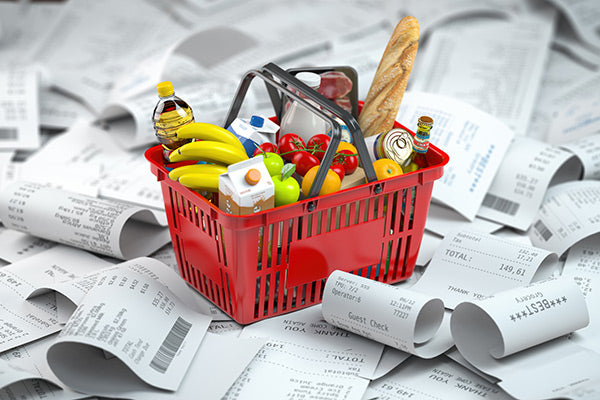
I still have a hard time with saying a complete goodbye to grains. I even took an Everly Well test to see if I had sensitivity to gluten. I don't have sensitivity to quinoa and buckwheat, different proteins in different grains. I've been looking at how I go about getting grain that is organic that I can bake or cook with and make my own sourdough if I want to. Have you got a bead on that? If you want to, as a United States American citizen, go out and find grain to make your own bread, if you can't find the organic, how do you do it?
You were saying even if it's not organic?
How do you find the organic?
There are a bunch of small mills that are popping up. I was amazed because even if you Google, there is a small batch of producers that are these small farms. A lot of the problem as to why we don't have more organic grain is simply the area to produce it. There aren't enough mills to get it into the market, but you're seeing these smaller mills popping up and filling that gap to be able to provide to smaller producers like smaller amounts of organic grains. You can order from them directly. For those who eat gluten, we do buy the store brand of, “I probably should send it for testing, but we will buy the organic at Whole Foods.”
Bob's Red Mill.
Bob’s did get in trouble for their grain a few years ago because they tested and there was quite the safe, but it was a tiny little residual amount. There was a lawsuit against them for it, but then it was forgiven because it was clear that it was out of their control. That was very nitpicky. It's not like with some high quantity.
You have a brand like Bob's Red Mill that's been around forever and is doing its best to do it. They are the company that somebody wants to take down.
That would be nice for all the competitors.
Expo East is happening. I'll share a memory about Bob at Bob's Red Mill. There was one trade show. I was at. I believe it was Expo East when Bob came through with a marching band around the trade show floor and he was leading it with a saber in the front and they essentially had the drums and horns going behind him, almost like that Louisiana-style. It was quite something. I did record it and even put it up on my personal YouTube channel.
There are a few leaders in this natural products industry who have a personality that deserves to be admired a bit and who've had their heart and the right place as they built a company that was pushing the envelope to change things so that people could have better health. I've always held that company in high regard because it hasn't been easy to build an organic grain company here in the States.
It's hard because so much of the soil is contaminated. That's a process trying to transition to or regeneratively produced and healthy soil and get there to get that organic stamp as a process for sure. He's been doing it long before it was even considered a great idea. It wasn't on the map for people by and large. King Arthur flour is coming along. They're trying to do a lot of work to improve what they're producing, even on the gluten-free end too. They'll be one to watch.
We got to meet the Mendocino Grain Company at the Soil & Health Forum. They are local to Northern California. They're operating as a male for these small-hold Farmers who are trying their best to grow regenerative organic grains and legumes. They even had a monthly subscription program that you could buy online. I was looking at it to see, “What can I commit to producing and what of my breads can I commit to making myself?”
Do you have a bread maker?
No, I've always done things in a cast iron pot. Sourdoughs and country breads are what I've done. I like the hard crust.
I know that is good. What I should be doing is going in and experimenting with all the organic different alternative grains and coming up with something great.
It's time-consuming and with gluten sensitivities, it can be quite tough. I have a gluten-sensitive friend who argues that sourdough is gluten-free. I always had that question. Perhaps we could start this wrap-up and you could answer that question. Is sourdough safe for gluten-intolerant people?
If it is labeled so, it is. Not all will be because of heavy cross-contamination. My favorite is sourdough. I am excited to have what seems like normal bread if you have a lot of sourdough that is pretty rough on the stomach because it is sour. I can only have that in limited amounts. That is often an option for people, and cornbread is a great alternative. A lot of times, that is gluten-free unless they add flour, which is like, “Why would you do that now?” You cut out all the gluten-free customers. Sourdough is a thing. That's a good thing to get into cooking and baking.
Thank you so much for joining me. This has been an awesome discussion. I would like to conclude by summarizing resources for people so they know where to go and where to find you. I know you have a website which is GlyphosateFacts.com. They can go there to further their education around this particular pesticide and how to avoid it. They can also follow your Instagram @GlyphosateGirl. Are there additional resources or some closing thoughts you'd like to offer our audience?
It's important to understand if you're reading about this or if this is something that concerns you so much that there are steps you can take to minimize your exposure. Even if you are not actively trying to detox from glyphosate, which is questionable if you even can, you'll see a lot of marketing around detox glyphosate. The best thing you can do for yourself is to start eating as organically as possible and those numbers will naturally come down in your body.
No need to panic because you have control over the situation, but be sure you are using your consumer power to support all the farmers trying to do it the right way. If organic is expensive to you, there are ways to find options like at Costco or buying ingredients versus packaged goods that are organic and start cooking yourself, which is a big pain for those who don't like to cook like me but important in order to minimize your exposure.
You can find some great products at Costco, as well as at your local grocery store. Look for organic labeling and see what your options are, even understore brands. In my neighborhood, I sometimes shop at Raley's. They have an organic oatmeal. You can go ahead and find that as opposed to the general brand that's available and you can avoid the glyphosate that would otherwise come with that. Thank you so much for joining me. I look forward to remaining connected. Perhaps we can meet again at another Soil & Health Forum.
Thank you.
---
If you enjoyed this episode, please subscribe. While you're at it, leave us a review. Go ahead and give us a thumbs up or a five-star rating. If you have ideas for future episodes that you'd like to see us feature, go ahead and send us an email note to Hello@OrloNutrition.com or a DM @OrloNutrition. Each of these simple actions, whether it be sharing this episode with a friend in your community who needs to learn more about glyphosate and other pesticides in our systems or even giving the show a review, will help us to reach more people so that we can do more good. I hope that you'll join me as I say my closing words. Here’s to your health.
Important Links
- Kelly Ryerson
- Soil & Health Forum
- The New Fish
- Mendocino Grain Company
- YouTube – Bob's Red Mill Parade at Expo West 2016
- @GlyphosateGirl – Instagram
- Hello@OrloNutrition.com
- @OrloNutrition – Facebook
About Kelly Ryerson

Kelly Ryerson works at the intersection of agriculture and health. She regularly collaborates with farmers, scientists, policymakers and media to address agrochemical damage to our soil and bodies. She also started the news site Glyphosate Facts, which explains the link between chemical agriculture and the explosion in chronic disease.
Kelly has contributed to several documentaries and news publications, co-hosts the morning show on CHDtv, and is a frequent speaker on podcasts. She is an Ambassador for The Rodale Institute. She has a BA from Dartmouth College, an MBA from the Stanford Graduate School of Business, and completed training in integrative health coaching at Duke Integrative Medicine.
